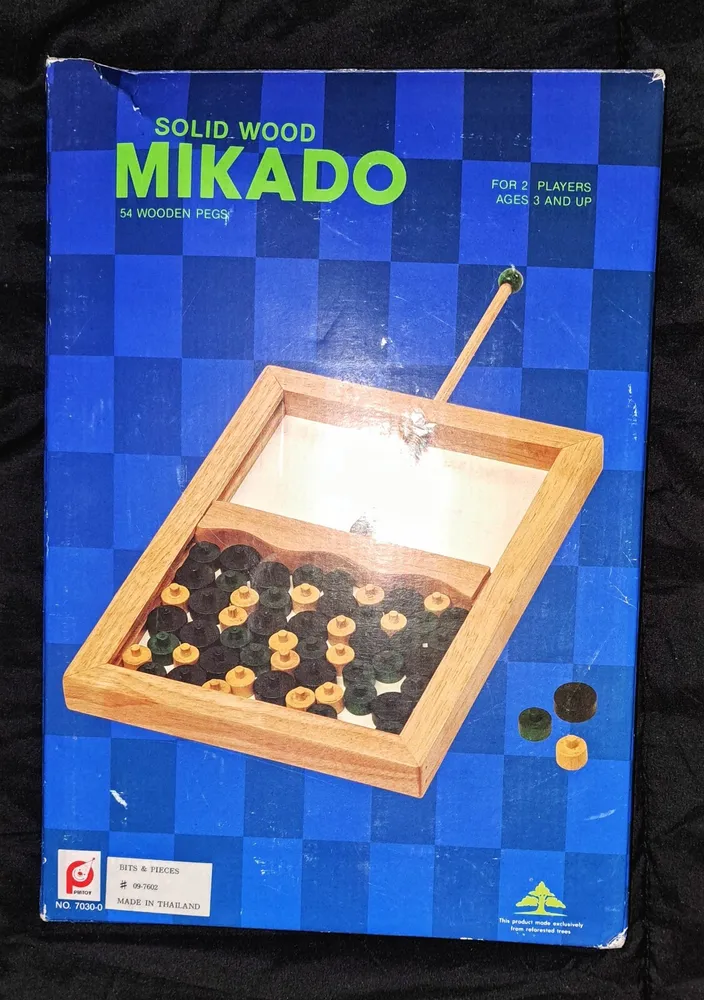Mikado
Mikado
Mikado is a pick-up sticks game that originated in Europe and is played with a set of same-length sticks that can measure between 17 and 20 cm (6.7 and 7.9 in). The game has its origins in ancient Asia, and although an exact date of its origin is not known, it is believed to have been played in ancient Egypt, Greece, and Rome. The modern version of the game is believed to have originated in Europe in the 18th century, and it was originally played with a bundle of straw or reeds, and it was known as Spillikins. In 1936, it was brought from Hungary (where it was called Marokko) to the United States and named pick-up sticks. The game is named for the highest scoring (blue) stick “Mikado” (Emperor of Japan).
Why is Mikado Popular?
Mikado is a classic game of physical skill that has been enjoyed by people around the world for centuries. It is a game that requires a steady hand and careful strategy, and with practice and patience, anyone can master the art of picking up sticks and coming out on top in this classic game of skill. The game is popular because it is easy to learn, can be played by people of all ages, and can be played with just a few players or a large group.
Game Components of Mikado
How To Setup Mikado
To set up the game, the sticks are bundled together and held in one hand, touching the table or ground. Then, the sticks are released, creating a circular jumble. Players take turns trying to pick up individual sticks without moving or touching any of the other sticks.
Gameplay Mechanics and Game Objective
– Each stick has a specific point value.
– Using certain sticks (like the Mikado or Mandarin) as helpers to pick up other sticks is allowed in some variations.
– Faults result in the end of the turn, and the last stick picked up is not counted.
Player Experience
Mikado is a game that requires precision, patience, and a steady hand. It is entertaining for both children and adults, as it challenges fine motor skills and strategic thinking. The game’s simplicity makes it accessible, while its complexity in requiring careful stick manipulation keeps players engaged.
Pros
Cons
Personal Thoughts on Mikado
Mikado is a classic game suitable for families, children, and even office breaks. It is an excellent tool for enhancing fine motor skills and promoting focus and patience. The game’s portability and simplicity make it a great addition to any game collection. However, it may not be the best fit for those seeking complex strategy or team-based gameplay. Overall, Mikado remains a timeless and engaging activity for a wide range of players.
We are supported by our audience. When you purchase through links on our site, we may earn an affiliate commission, at no extra cost for you. Learn more.

